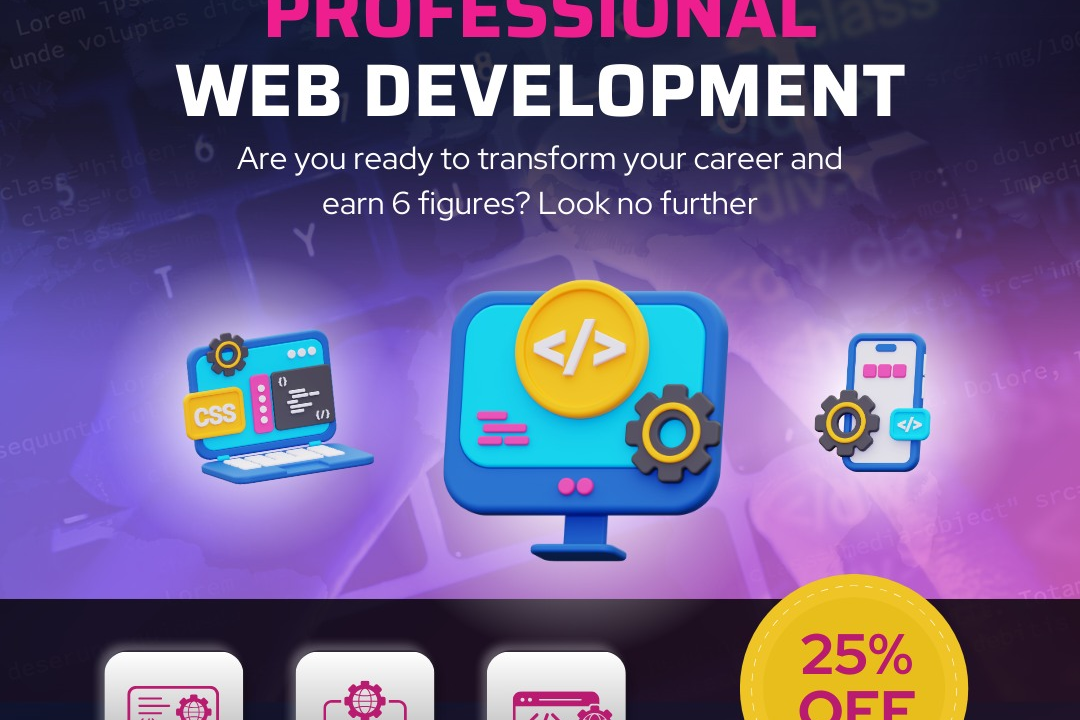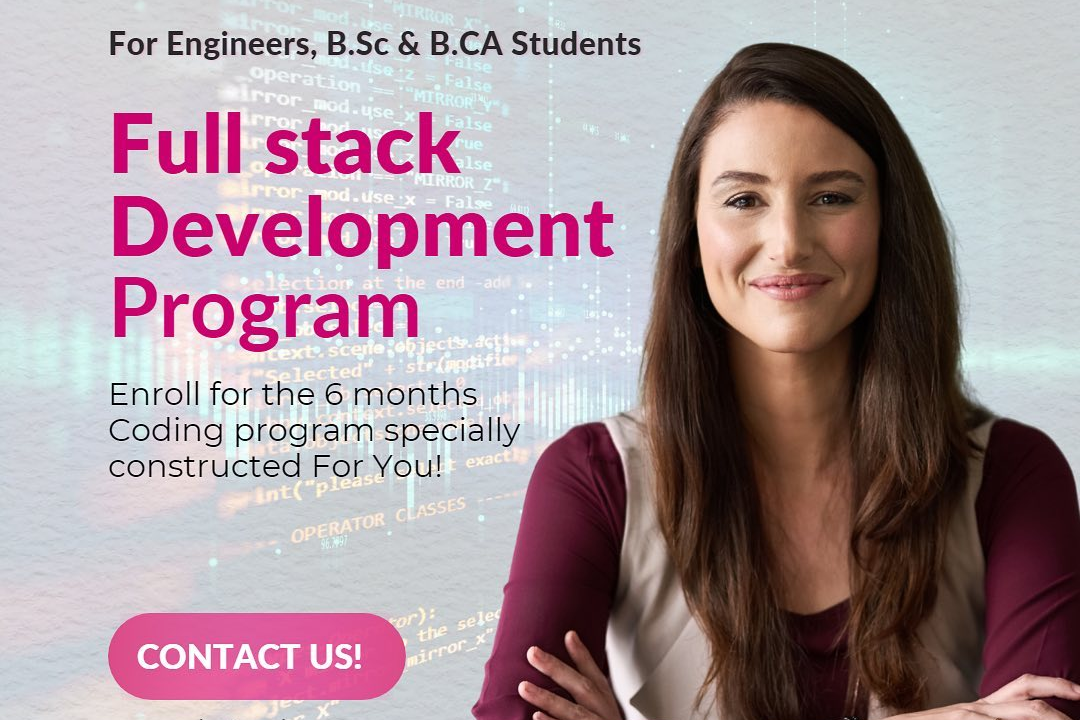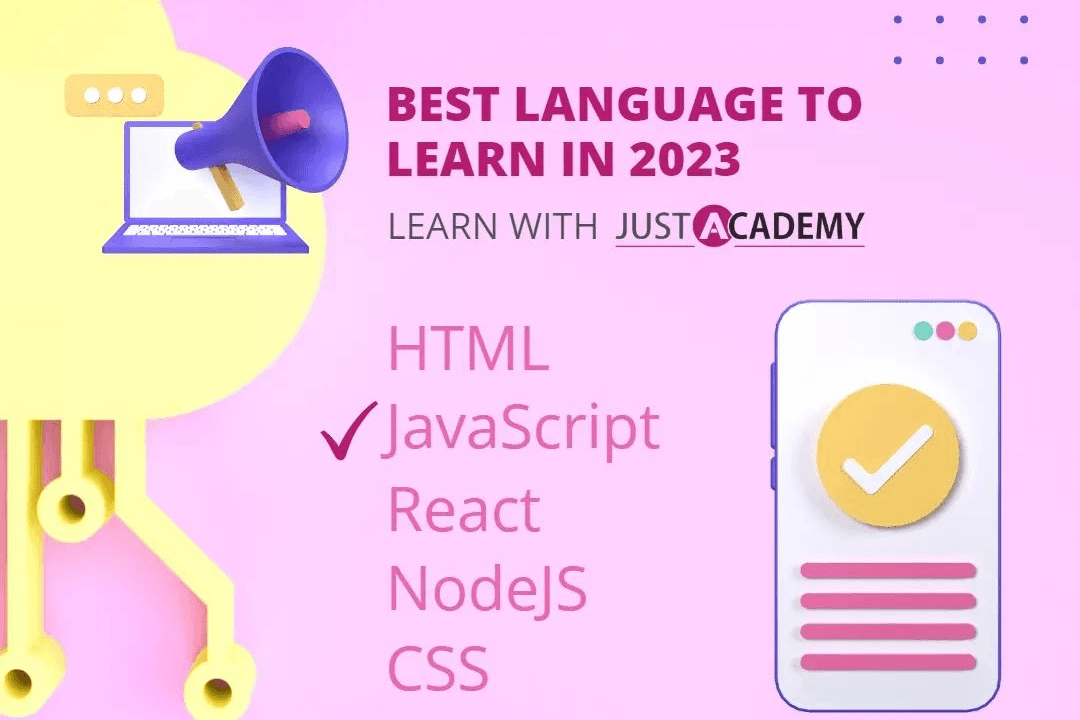Laravel Interview Questions 2019
Top Laravel Interview Questions to Prepare for 2023
Laravel Interview Questions 2019
Laravel interview questions from 2019 remain relevant as they cover fundamental concepts and best practices essential for developers working with this popular PHP framework. By familiarizing yourself with these questions, you can validate your understanding of key topics such as routing, middleware, authentication, and Eloquent ORM. Preparing for these questions equips candidates with the knowledge to demonstrate their problem-solving abilities and coding skills during interviews, making it a valuable resource for both novice and experienced Laravel developers seeking to enhance their career prospects.
To Download Our Brochure: https://www.justacademy.co/download-brochure-for-free
Message us for more information: +91 9987184296
Here are 15 essential Laravel interview questions from 2019 along with concise answers:
1 - What is Laravel?
Laravel is a PHP framework designed for web application development, following the MVC (Model View Controller) architectural pattern. It aims to simplify common tasks such as routing, authentication, and caching, enabling developers to build robust and scalable applications efficiently.
2) What are the main features of Laravel?
Key features include Eloquent ORM for database interaction, a powerful routing system, built in authentication and authorization, middleware for filtering HTTP requests, job queues for background processing, and an expressive templating engine called Blade.
3) What is Eloquent ORM in Laravel?
Eloquent ORM (Object Relational Mapping) is Laravel's built in database management system. It allows developers to interact with their database using PHP syntax rather than SQL, making the database operations more intuitive and integrated into the application.
4) How does routing work in Laravel?
Routing in Laravel is defined in the `routes/web.php` file. Routes can respond to various HTTP methods (GET, POST, etc.), and you can define named routes for easier URL generation. Laravel also supports route parameters, which capture data from the URL.
5) What is Middleware in Laravel?
Middleware acts as a bridge between a request and response in a Laravel application, allowing you to filter HTTP requests entering your application. Common uses include authentication checks, logging, and CORS settings.
6) Explain the concept of Service Providers in Laravel.
Service Providers are the central place to configure and register application services in Laravel. Each provider contains a `register` and an optional `boot` method, allowing you to bind services to the service container.
7) What is the use of Composer in Laravel?
Composer is a dependency management tool used in Laravel for managing libraries and packages required by an application. It simplifies the process of including and updating PHP libraries through a configuration file called `composer.json`.
8) How can you handle errors in Laravel?
Laravel provides an elegant way to handle errors and exceptions using the `try catch` block within routes or controllers. Additionally, it offers an error handling mechanism that processes exceptions and presents a user friendly error page.
9) What is the purpose of the `.env` file in Laravel?
The `.env` file contains environment specific configuration settings for a Laravel application, such as database credentials, API keys, and other sensitive information. This enables developers to manage different configurations in development, testing, and production environments seamlessly.
10) Explain the concept of migrations in Laravel.
Migrations are version controlled scripts for database schema changes. They allow developers to define database tables and columns using PHP syntax. Migrations can be easily rolled back or reapplied, enhancing collaboration and database management among teams.
11 - What are Laravel Blade Templates?
Blade is Laravel's powerful templating engine. It allows developers to create dynamic layouts and reusable views. Blade provides easy syntax for control structures and allows template inheritance, simplifying HTML markup management in applications.
12) How can you implement authentication in Laravel?
Laravel includes an out of the box authentication system. By running the `php artisan make:auth` command, developers can generate authentication scaffolding, which includes login, registration, and password reset functionalities.
13) What is the difference between the `hasMany` and `belongsTo` relationships in Laravel?
In Eloquent, `hasMany` defines a one to many relationship where one model can be associated with multiple records in another model, while `belongsTo` defines a reverse relationship where a model belongs to a single record in another model.
14) What are Form Requests in Laravel?
Form Requests are a way to handle validation logic for incoming HTTP requests. By creating a Form Request class, developers can encapsulate and manage validation, authorization, and input sanitation cleanly and separately from controllers.
15) What is the purpose of the `artisan` command in Laravel?
Artisan is Laravel's command line interface that provides a suite of helpful commands for common tasks like database migrations, running tests, and generating boilerplate code. Developers can also create custom commands for application specific needs.
These questions and answers provide a solid foundation for understanding Laravel and preparing for interviews focused on this framework.
Here are additional Laravel interview questions and answers that can help expand your preparation for a Laravel focused interview:
16) What is Dependency Injection in Laravel?
Dependency Injection is a design pattern used in Laravel that allows a class to receive its dependencies from an external source rather than creating them itself. This promotes better separation of concerns and easier testing.
17) What are Laravel Events and Listeners?
Events in Laravel are a way to handle actions that occur within an application, such as user registrations. Listeners are responsible for responding to these events. This system allows for decoupled code and makes it easier to manage complex applications.
18) Explain the purpose of the Laravel Queue.
Laravel Queue allows developers to defer the processing of a time consuming task, such as sending emails or processing uploads, to improve application performance. Queued jobs can be processed synchronously or asynchronously, depending on the configuration.
19) What is Laravel Passport?
Laravel Passport is an OAuth2 server implementation that provides a complete authentication system for APIs. It enables secure API authentication via access tokens and integrates seamlessly with Laravel's built in features.
20) How does Laravel handle file storage?
Laravel provides a unified API for file storage across different file systems, including local, Amazon S3, and others through the `Storage` facade. Developers can easily read, write, and manage files without worrying about the underlying provider.
21 - What are Routes Groups in Laravel?
Route Groups allow developers to group routes that share common attributes such as middleware or namespace. This helps organize code and can simplify the definition of routes by applying the same attributes to multiple routes at once.
22) What is the difference between `GET` and `POST` requests in Laravel?
`GET` requests are used to fetch data from the server and are idempotent (can be repeated). In contrast, `POST` requests are used to send data to the server for processing and create new resources, making them non idempotent.
23) What is the role of the `config` folder in Laravel?
The `config` folder contains all configuration files for various components of the application, such as database settings, services, and caching. Developers can easily modify their application configuration through these files.
24) What is a Policy in Laravel?
Policies are classes that organize authorization logic around a specific model or resource. Policies help determine whether a user has permission to perform actions such as view, create, update, or delete data related to that resource.
25) Explain the purpose of `Laravel Mix`.
Laravel Mix is a wrapper around Webpack that simplifies the process of compiling and minifying assets like JavaScript, CSS, and images. It provides a fluent API for defining build steps for asset management.
26) What are Accessors and Mutators in Eloquent?
Accessors and Mutators allow developers to format model attributes when retrieving or setting values. Accessors allow you to manipulate data before it’s returned to the user, while Mutators let you modify data before it’s saved to the database.
27) How can you implement CSRF protection in Laravel?
Laravel automatically protects against Cross Site Request Forgery (CSRF) attacks by generating a CSRF token for each active session. This token is included in forms and validated on submission, helping to ensure the request originated from the intended user.
28) What are Custom Validation Rules in Laravel?
Custom Validation Rules allow developers to define their validation logic for form inputs beyond the built in rules. You can create a custom rule class or use the `Rule` facade to add specific validation criteria.
29) What is the purpose of `Config::get()` in Laravel?
`Config::get()` retrieves values from the configuration files stored in the `config` directory. It allows developers to access configuration settings dynamically throughout the application, enhancing flexibility.
30) How can you utilize caching in Laravel?
Laravel provides a caching mechanism that supports various cache drivers (e.g., file, database, Redis). Developers can cache data to improve performance and reduce database queries using the `Cache` facade, making applications more efficient.
31 - What is the purpose of Resource Controllers in Laravel?
Resource Controllers are a convenient way to create RESTful controllers in Laravel. By using resource routes, developers can automatically handle common actions like index, show, create, update, and delete for a particular resource.
32) How does Laravel support localization?
Laravel supports localization by allowing developers to define language specific messages and translations in `lang` files stored in the `resources` directory. This enables applications to easily cater to a multilingual audience.
33) What is the role of the Route Model Binding in Laravel?
Route Model Binding automatically resolves Eloquent models based on the route parameters. Instead of manually fetching the model using its ID, Laravel can automatically inject the model instance corresponding to the ID provided in the route.
34) How can you handle file uploads in Laravel?
File uploads in Laravel can be handled using the `UploadedFile` object. Developers can manage file uploads by validating, processing, and storing files in a specific directory using the `Storage` facade.
35) What is Tinker in Laravel?
Tinker is an interactive shell that comes with Laravel, allowing developers to interact with their applications through the command line. It provides a convenient way to run queries, test code snippets, and experiment with Eloquent models.
These questions and answers should enhance your understanding of Laravel and provide a broader perspective for your interview preparation.
Course Overview
The “Laravel Interview Questions 2019” course is designed to equip learners with essential knowledge and practical insights into the Laravel framework, focusing on frequently asked interview questions that emerged in 2019. Participants will delve into key topics such as routing, middleware, controllers, Eloquent ORM, and authentication, with a strong emphasis on real-world applications and problem-solving techniques. This course aims to enhance participants' confidence and readiness for technical interviews by offering them a comprehensive study of Laravel concepts and best practices. Through engaging materials and practical exercises, learners will gain a deeper understanding of Laravel's capabilities, empowering them to excel in their job search and advance their careers in web development.
Course Description
The “Laravel Interview Questions 2019” course provides an in-depth exploration of essential Laravel concepts, focusing on commonly asked interview questions from 2019. Designed for aspiring web developers, this course covers crucial topics including routing, middleware, controllers, Eloquent ORM, and authentication, all with practical examples and real-time project applications. Participants will engage with a comprehensive set of questions and scenarios to sharpen their problem-solving abilities and technical knowledge, ensuring they are well-prepared for interviews in the competitive job market. By the end of the course, learners will not only have a solid understanding of Laravel but also the confidence to tackle interview challenges effectively.
Key Features
1 - Comprehensive Tool Coverage: Provides hands-on training with a range of industry-standard testing tools, including Selenium, JIRA, LoadRunner, and TestRail.
2) Practical Exercises: Features real-world exercises and case studies to apply tools in various testing scenarios.
3) Interactive Learning: Includes interactive sessions with industry experts for personalized feedback and guidance.
4) Detailed Tutorials: Offers extensive tutorials and documentation on tool functionalities and best practices.
5) Advanced Techniques: Covers both fundamental and advanced techniques for using testing tools effectively.
6) Data Visualization: Integrates tools for visualizing test metrics and results, enhancing data interpretation and decision-making.
7) Tool Integration: Teaches how to integrate testing tools into the software development lifecycle for streamlined workflows.
8) Project-Based Learning: Focuses on project-based learning to build practical skills and create a portfolio of completed tasks.
9) Career Support: Provides resources and support for applying learned skills to real-world job scenarios, including resume building and interview preparation.
10) Up-to-Date Content: Ensures that course materials reflect the latest industry standards and tool updates.
Benefits of taking our course
Functional Tools
1 - Laravel Framework: The course focuses on the Laravel framework itself, which is an open source PHP framework known for its elegance and simplicity. It enables developers to build applications using the Model View Controller (MVC) architectural pattern. Students learn how to utilize Laravel features such as routing, middleware, and Eloquent ORM for efficient database management. The hands on experience with Laravel allows students to get practical knowledge and skills for creating robust web applications.
2) PHP: As Laravel is built on PHP, a solid understanding of PHP programming language is essential. Throughout the course, students reinforce their PHP skills, focusing on advanced features such as namespaces, traits, and object oriented programming principles that are crucial for mastering Laravel development. This groundwork enables learners to code efficiently and effectively when working with Laravel projects and integrating custom functionalities.
3) Composer: Composer is a dependency management tool used in the PHP ecosystem, and it plays a significant role in facilitating Laravel installations and package management. In this course, students learn how to use Composer to manage dependencies, install libraries, and ensure that their application has all required components. Understanding Composer is vital for maintaining code quality and ensuring that projects are up to date with the latest libraries and tools.
4) MySQL: MySQL is one of the most widely used databases in conjunction with Laravel. The course includes a focus on database interactions, where students learn how to set up MySQL databases, execute queries, and perform migrations using Laravel's Eloquent ORM. Students also explore relationships between tables, such as one to many and many to many, enabling them to design well structured databases tailored to their applications.
5) Postman: Postman is a popular tool for testing APIs, enabling students to make HTTP requests to their Laravel applications during development. In this course, learners gain practical experience using Postman to test API endpoints, inspect responses, and validate their applications' functionality. Mastering Postman helps students ensure that their APIs are working correctly, providing a reliable backend for their front end applications.
6) Git: Version control is crucial for collaborative development and maintaining project history, and Git is the industry standard tool for this purpose. The course incorporates Git to teach students how to track changes in their Laravel projects, collaborate with others, and manage different versions of their codebase. Understanding Git workflows and commands empowers students to work efficiently in team settings and contributes to their overall developer proficiency.
7) IDE Tools (PhpStorm / Visual Studio Code): Integrated Development Environments (IDEs) like PhpStorm or Visual Studio Code are essential for writing efficient Laravel code. The course emphasizes the use of IDEs, showcasing features such as syntax highlighting, debugging, and code completion. Students learn to leverage these tools to enhance their productivity and streamline their coding processes, making it easier to develop and maintain Laravel applications.
8) RESTful API Development: The course delves into the principles of RESTful API design, teaching students how to create robust APIs in Laravel. Students learn to structure their endpoints, implement proper HTTP methods, and ensure that their APIs are REST compliant. By the end of this segment, learners can create APIs that are easy to use and integrate with front end frameworks or applications, enhancing their full stack development capabilities.
9) Authentication & Authorization: Security is paramount in web applications, and Laravel provides powerful tools for handling authentication and authorization. This course covers Laravel’s built in solutions for user authentication, including registration, login, password resets, and role based access control. Students gain hands on experience with securing their applications and managing user permissions, ensuring that sensitive data is well protected.
10) Frontend Integration: Understanding how to integrate front end technologies with Laravel is critical for modern web development. This course introduces students to front end frameworks like Vue.js or React, showcasing how to utilize them alongside Laravel to build dynamic and responsive user interfaces. Learners explore the interaction between back end and front end components, enhancing their ability to deliver complete web applications.
11 - Unit Testing: Robust applications require thorough testing. This course emphasizes the importance of unit testing within Laravel and introduces students to PHPUnit, the testing framework used in Laravel applications. Learners gain insights into writing tests for their code, ensuring that each component works as intended and facilitating continuous integration/continuous deployment (CI/CD) processes.
12) Deployment Strategies: Once development is complete, deploying applications to a live server is the next critical step. The course covers various deployment strategies, including using services like DigitalOcean, AWS, and shared hosting. Students learn best practices for preparing their Laravel applications for production, including configuring environment variables, handling caching, and optimizing performance.
13) Middleware: Middleware are important components in Laravel that act as a bridge between a request and response. This course guides students in creating custom middleware and using built in ones for functions such as logging, authentication, and CORS handling. Understanding middleware allows students to manipulate requests and responses efficiently and adds flexibility to their applications.
14) Laravel Ecosystem: Laravel comes with a rich ecosystem of tools and packages that enhance development. This course introduces students to essential Laravel packages like Laravel Mix for asset compilation, Scout for full text search, and Horizon for queue management. Familiarity with these tools equips students to develop applications with advanced features and functionalities efficiently.
15) Error Handling & Debugging: Effective error handling and debugging are essential skills for any developer. The course addresses Laravel’s built in error handling capabilities and how to implement logging using Laravel’s logging library. Students learn techniques for troubleshooting common issues, ensuring they can diagnose and resolve problems quickly during the development phase.
16) Real Time Applications: With the growing demand for real time interactions, this course introduces students to Laravel Echo, which allows for real time broadcasting and event handling. Learners gain practical experience in implementing features such as notifications, chat functionality, and live updates, adding an exciting dimension to their projects.
17) Performance Optimization: Performance is crucial for user experience. The course includes strategies for optimizing Laravel applications, covering topics such as efficient database queries, caching strategies, and optimizing asset delivery. Students learn how to analyze and improve the performance of their applications to ensure a smooth user experience.
18) Data Security Best Practices: Security is an ongoing concern for web developers, and this course covers best practices for securing Laravel applications. Topics include input validation, sanitizing user inputs, protecting against SQL injection, and using HTTPS. By understanding these principles, students can build applications that prioritize data security from the ground up.
19) Community and Resources: Finally, the course emphasizes the importance of staying connected with the Laravel community and utilizing resources. Students discover where to find documentation, forums, and community support, ensuring they have ongoing access to knowledge and assistance as they continue their Laravel development journey beyond the course.
By offering a comprehensive curriculum that covers these various aspects of Laravel development, JustAcademy ensures that students are well equipped to excel in their careers as Laravel developers.
Browse our course links : https://www.justacademy.co/all-courses
To Join our FREE DEMO Session: Click Here
This information is sourced from JustAcademy
Contact Info:
Roshan Chaturvedi
Message us on Whatsapp: +91 9987184296
Email id: info@justacademy.co
Interview Questions Of React Js
Interviews Question And Answer On Laravel












